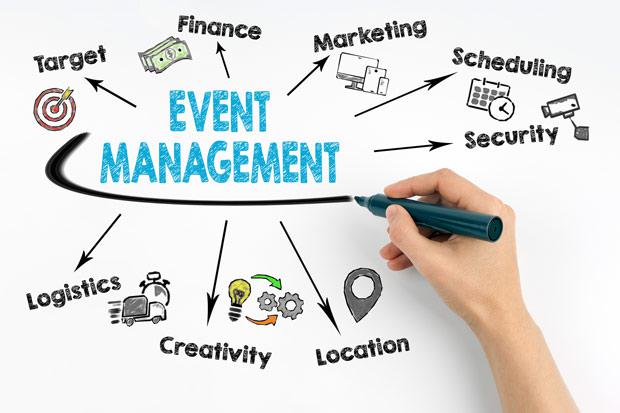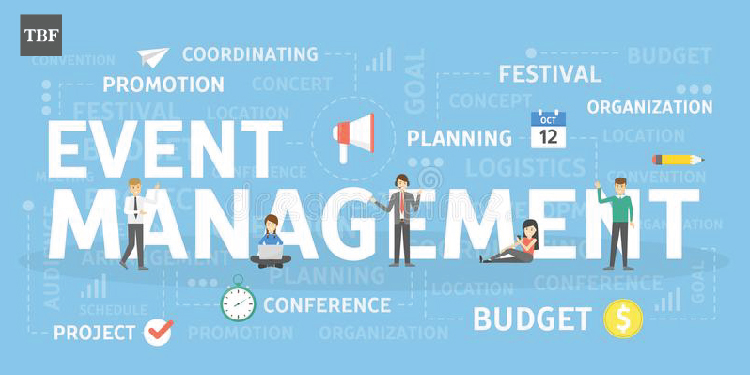A Deep Dive Into Just How Event Management Works to Create Memorable Experiences
Event management is a complicated discipline that integrates various aspects to craft unforgettable experiences. It needs a clear understanding of the event's purpose and audience. Planners have to browse budgeting, logistics, and advertising and marketing to guarantee a smooth implementation. Each element plays an essential role in attaining the preferred influence. The journey does not end with the event itself. There are understandings to uncover that can shape future undertakings.
The Fundamentals of Event Management
Efficient event management incorporates a variety of crucial principles that direct the preparation and implementation of successful occasions. At its core, it involves comprehending the event's objective, audience, and desired results. Recognizing the target group is crucial, as it notifies decisions associated to web content, marketing, and logistics.
Budgeting is one more essential element, ensuring that sources are alloted successfully while satisfying the event's purposes. This includes planning for unpredicted expenses that may occur.
Time management plays an important duty, as event managers need to create a thorough timeline to collaborate various tasks and turning points.
Furthermore, efficient communication amongst stakeholders, vendors, and group members is vital to guarantee placement and prevent misunderstandings.
Risk management must be taken into consideration, with backup strategies in location to address possible difficulties, thereby boosting the general experience for attendees and assuring a smooth execution of the event.
Trick Functions in Event Planning
In event planning, comprehending key functions is important for effective execution. The event planner is accountable for overseeing logistics and making sure all aspects straighten with the vision. Additionally, efficient vendor management is important for keeping quality and promoting solid partnerships throughout the preparation procedure.
Event Coordinator Duties
An event organizer orchestrates the complicated elements of event planning, making certain seamless implementation from conception to final thought. They are liable for conceptualizing the event motif, setting spending plans, and creating timelines to keep the task on track. Coordination with stakeholders, consisting of customers, venue supervisors, and volunteers, is vital to straighten assumptions and facilitate communication. The organizer additionally oversees logistics, such as wedding catering, transport, and technology requires, ensuring all components work harmoniously. They carry out website brows through, manage schedules, and troubleshoot issues that may occur throughout the event. Post-event, the organizer examines the event's success, collecting responses and assessing end results to inform future tasks. This complex role needs strong business skills, interest to information, and efficient social communication.
Supplier Management Basics
Guiding through the landscape of supplier management is necessary for effective event planning. Reliable supplier management includes recognizing, choosing, and coordinating vendors who give essential solutions, such as catering, audiovisual assistance, and design. Event coordinators have to maintain strong interaction with suppliers to assure that all aspects align with the event's vision. Key roles consist of the supplier manager, who oversees agreements and settlements, and the logistics coordinator, in charge of on-site setup and execution. It's important to establish clear assumptions and timelines, promoting a collaborative setting that improves the overall experience. By focusing on these elements, event planners can browse prospective challenges, ensuring that every information contributes to a smooth and unforgettable event.
Crafting a Vision: Idea Development

As soon as a vision is established, it ends up being important to convert it right into workable components. This includes defining the environment, selecting ideal venues, and establishing the event's design. Collaborating with stakeholders, including enrollers and companions, better refines the idea, making certain that all events share a combined understanding of the event's function. Eventually, a strong vision not just boosts attendee engagement but likewise sets the phase for remarkable experiences that reverberate long after the pop over to this web-site event ends.
Budgeting and Source Appropriation
With a clear vision in position, the following action in event management entails mindful budgeting and resource allotment. This important stage assurances that all needed elements are funded and lined up with the event's objectives. Event supervisors begin by estimating expenses associated with location option, wedding catering, home entertainment, and advertising. They develop a detailed budget plan that describes each classification, permitting openness and responsibility.
Source allocation expands past funds; it additionally encompasses personnels. Recognizing team roles, duties, and timelines is necessary to assure performance. Event managers should also consider backups for unanticipated costs or changes in extent, developing a barrier within the budget plan.
Focusing on investing on aspects that enhance visitor experiences is important. By tactically allocating sources, event managers optimize impact while keeping financial control. This self-displined approach not just fosters successful events however also constructs integrity and trust with stakeholders and individuals.
Logistics: The Backbone of Event Execution
While budgeting prepares for an event, logistics serve as its foundation, ensuring that every aspect is performed smoothly and effectively. charlotte event companies. This incorporates a wide range of activities, including venue choice, transport setups, and tools purchase. Reliable logistics management needs thorough planning and sychronisation to assure that all components straighten with the event's timeline and objectives
Secret elements of logistics consist of supply management, where materials and products are tracked to stop scarcities, and staffing, which involves recruiting and training personnel to deal with different jobs. Communication is also important, as it promotes cooperation amongst suppliers, enrollers, and the event group.

Advertising And Marketing and Promotion Methods
Efficient advertising and marketing and promo methods are crucial for making the most of participation and engagement at an event, as they generate passion and exhilaration among potential participants. Event supervisors use a mix of typical and electronic advertising methods to reach their target audience. Social media platforms, email campaigns, and targeted advertisements are typically made use of to develop buzz and foster area communication. Cooperations with influencers or sector leaders can boost reliability, while engaging web content such as video clips and endorsements can reverberate with prospective guests.
On top of that, leveraging event-specific hashtags and developing shareable graphics encourages natural promotion among attendees. Early riser ticket offers and exclusive promos can incentivize enrollment, furthermore increasing passion. In addition, a well-designed website that uses easy navigating and clear info concerning the event can boost the individual experience. By executing these advertising and marketing and promo techniques, event supervisors can guarantee greater presence and eventually develop a memorable experience for all individuals.

Determining Success: Feedback and Evaluation
Success in event management rests on robust responses and assessment devices. These processes are crucial for figuring out the more tips here effectiveness of an occasion and recognizing areas for renovation. By gathering input from attendees, organizers can analyze satisfaction levels, recognize preferences, and assess total impact. Studies and meetings serve as beneficial tools for collecting measurable and qualitative information, enabling for thorough analysis.
In addition, evaluating essential performance indications (KPIs) such as presence rates, involvement levels, and roi (ROI) offers a more clear picture of event success. Post-event debriefing sessions with the preparation group additionally add insights, cultivating a society of continuous improvement.
Eventually, a methodical strategy to feedback and evaluation not only improves future occasions yet additionally enhances partnerships with stakeholders. By implementing these techniques, event managers can produce unforgettable experiences that resonate with participants and drive continuous interaction.
Often Asked Concerns
Just How Do Event Supervisors Deal With Unforeseen Difficulties During an Event?
Event managers deal with unforeseen challenges by remaining calmness, assessing the circumstance, and executing backup plans - charlotte event companies. They communicate efficiently with their team, adjust promptly, and focus on options to ensure the event continues efficiently and efficiently
What Modern Technology Tools Are Essential for Modern Event Management?
Important technology devices for contemporary event management consist of event enrollment software program, project management applications, attendee engagement platforms, and useful content analytics tools. These resources streamline processes, boost communication, and enhance general event experiences for coordinators and individuals alike.
How Do Social Distinctions Influence Event Preparation and Execution?
Social differences greatly influence event preparation and execution. They impact motifs, personalizeds, communication styles, and assumptions, necessitating customized approaches to ensure inclusivity and respect, eventually forming the total experience and success of the event.
What Are the Honest Considerations in Event Management?
Moral considerations in event management incorporate transparency, sustainability, social sensitivity, and inclusivity. Organizers should focus on fairness, regard varied target markets, reduce ecological impact, and warranty ease of access to develop liable and unforgettable experiences for all individuals.
Exactly How Can Sustainability Be Integrated Into Event Preparation?
Sustainability can be integrated into event preparation by making use of environment-friendly products, reducing waste, sourcing neighborhood vendors, carrying out carbon offset programs, and advertising electronic services to minimize paper use, thereby improving ecological awareness within the event's structure.